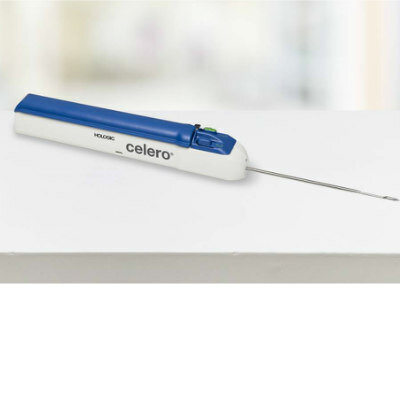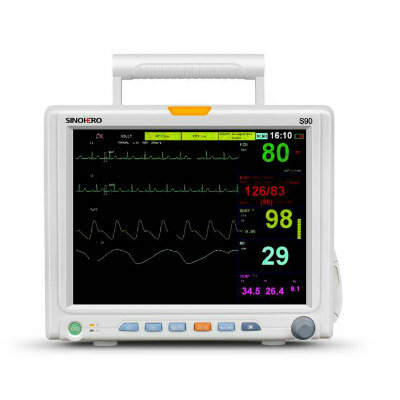Gender Bias Found in Bypass Surgery
|
By HospiMedica staff writers Posted on 17 Mar 2005 |
A study has found that the odds of a woman meeting the criteria for bypass surgery but not receiving the procedure are about double that of comparable men. The study's findings were reported in the March 2005 issue of Psychology of Women Quarterly.
To find the reasoning behind this discrepancy, patient information from the U.S. National Hospital Discharge Survey for 1988 and 1998 was examined by the study's author, Cheryl B. Travis, professor of psychology and chair of women's studies at the University of Tennessee Knoxville (USA). The common explanations were that women do not have the appropriate diagnoses, they have complicating conditions that make them a poor risk, they are too elderly and frail to benefit, and the surgery carries a greater risk of mortality for women. However, none of these were supported in any way, suggesting that the real explanation may be gender bias.
Controlling for primary diagnoses of heart attack, obstructed blood flow to the heart, or angina had little effect on the gender disparity. Data from the study showed that among patients with heart attacks who received bypass, there were only 59 recipients for every 100 men who received bypass surgery. Women with comorbid conditions such as diabetes or hypertension were found to have significantly more conservative treatment decisions than men with the same conditions. Similarly, women were found twice as likely not to receive the surgery compared to men in the same age group. Women in their 40s, for example, experienced more than a three-fold risk of not receiving the surgery over men in their forties
Medical literature has typically reported a higher risk of mortality among women patients but always in comparison to men. "For purposes of women's decision-making, mortality risk should be considered as it is assessed among and referenced to women with comparable medical profiles,” advised Dr. Travis. In fact, women having medical conditions consistent with bypass surgery have been found to be more likely than control women to survive hospitalization if they receive the surgery.
Related Links:
U. of Kentucky Knoxville
To find the reasoning behind this discrepancy, patient information from the U.S. National Hospital Discharge Survey for 1988 and 1998 was examined by the study's author, Cheryl B. Travis, professor of psychology and chair of women's studies at the University of Tennessee Knoxville (USA). The common explanations were that women do not have the appropriate diagnoses, they have complicating conditions that make them a poor risk, they are too elderly and frail to benefit, and the surgery carries a greater risk of mortality for women. However, none of these were supported in any way, suggesting that the real explanation may be gender bias.
Controlling for primary diagnoses of heart attack, obstructed blood flow to the heart, or angina had little effect on the gender disparity. Data from the study showed that among patients with heart attacks who received bypass, there were only 59 recipients for every 100 men who received bypass surgery. Women with comorbid conditions such as diabetes or hypertension were found to have significantly more conservative treatment decisions than men with the same conditions. Similarly, women were found twice as likely not to receive the surgery compared to men in the same age group. Women in their 40s, for example, experienced more than a three-fold risk of not receiving the surgery over men in their forties
Medical literature has typically reported a higher risk of mortality among women patients but always in comparison to men. "For purposes of women's decision-making, mortality risk should be considered as it is assessed among and referenced to women with comparable medical profiles,” advised Dr. Travis. In fact, women having medical conditions consistent with bypass surgery have been found to be more likely than control women to survive hospitalization if they receive the surgery.
Related Links:
U. of Kentucky Knoxville
Latest Critical Care News
- Novel Cannula Delivery System Enables Targeted Delivery of Imaging Agents and Drugs
- Ingestible Smart Capsule for Chemical Sensing in the Gut Moves Closer to Market
- Novel Intrabronchial Method Delivers Cell Therapies in Critically Ill Patients on External Lung Support
- Generative AI Technology Detects Heart Disease Earlier Than Conventional Methods
- Wearable Technology Predicts Cardiovascular Risk by Continuously Monitoring Heart Rate Recovery
- Wearable Health Monitoring Device Measures Gases Emitted from and Absorbed by Skin
- Groundbreaking Technology Rapidly Detects Airborne Influenza Viruses
- Handheld Device Could Transform Heart Disease Screening
- Flexible Semi-Autonomous Robot Could Deliver Medicine Inside Body

- Neurorestorative Treatment Strategies Hold Promise for Most Severe Forms of Epilepsy
- Gene Discovery Could Help Grow New Heart Arteries
- Study Discovers Invisible Transmission of Common Hospital-Associated Infection
- Non-Invasive Neuro-Ophthalmology Techniques Could Detect Brain Tumors Earlier
- Mass Manufactured Nanoparticles to Deliver Cancer Drugs Directly to Tumors
- World’s Smallest Pacemaker Fits Inside Syringe Tip

- AI-Powered, Internet-Connected Medical Devices to Revolutionize Healthcare, Finds Study
Channels
Surgical Techniques
view channel
Pioneering Sutureless Coronary Bypass Technology to Eliminate Open-Chest Procedures
In patients with coronary artery disease, certain blood vessels may be narrowed or blocked, requiring a stent or a bypass (also known as diversion) to restore blood flow to the heart. Bypass surgeries... Read more
Intravascular Imaging for Guiding Stent Implantation Ensures Safer Stenting Procedures
Patients diagnosed with coronary artery disease, which is caused by plaque accumulation within the arteries leading to chest pain, shortness of breath, and potential heart attacks, frequently undergo percutaneous... Read more
World's First AI Surgical Guidance Platform Allows Surgeons to Measure Success in Real-Time
Surgeons have always faced challenges in measuring their progress toward surgical goals during procedures. Traditionally, obtaining measurements required stepping out of the sterile environment to perform... Read morePatient Care
view channel
Portable Biosensor Platform to Reduce Hospital-Acquired Infections
Approximately 4 million patients in the European Union acquire healthcare-associated infections (HAIs) or nosocomial infections each year, with around 37,000 deaths directly resulting from these infections,... Read moreFirst-Of-Its-Kind Portable Germicidal Light Technology Disinfects High-Touch Clinical Surfaces in Seconds
Reducing healthcare-acquired infections (HAIs) remains a pressing issue within global healthcare systems. In the United States alone, 1.7 million patients contract HAIs annually, leading to approximately... Read more
Surgical Capacity Optimization Solution Helps Hospitals Boost OR Utilization
An innovative solution has the capability to transform surgical capacity utilization by targeting the root cause of surgical block time inefficiencies. Fujitsu Limited’s (Tokyo, Japan) Surgical Capacity... Read more
Game-Changing Innovation in Surgical Instrument Sterilization Significantly Improves OR Throughput
A groundbreaking innovation enables hospitals to significantly improve instrument processing time and throughput in operating rooms (ORs) and sterile processing departments. Turbett Surgical, Inc.... Read moreHealth IT
view channel
Printable Molecule-Selective Nanoparticles Enable Mass Production of Wearable Biosensors
The future of medicine is likely to focus on the personalization of healthcare—understanding exactly what an individual requires and delivering the appropriate combination of nutrients, metabolites, and... Read more
Smartwatches Could Detect Congestive Heart Failure
Diagnosing congestive heart failure (CHF) typically requires expensive and time-consuming imaging techniques like echocardiography, also known as cardiac ultrasound. Previously, detecting CHF by analyzing... Read moreBusiness
view channel
Expanded Collaboration to Transform OR Technology Through AI and Automation
The expansion of an existing collaboration between three leading companies aims to develop artificial intelligence (AI)-driven solutions for smart operating rooms with sophisticated monitoring and automation.... Read more
















